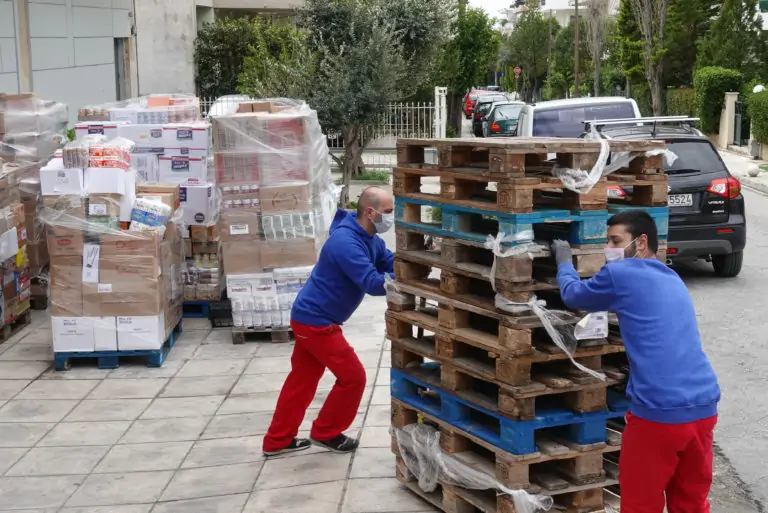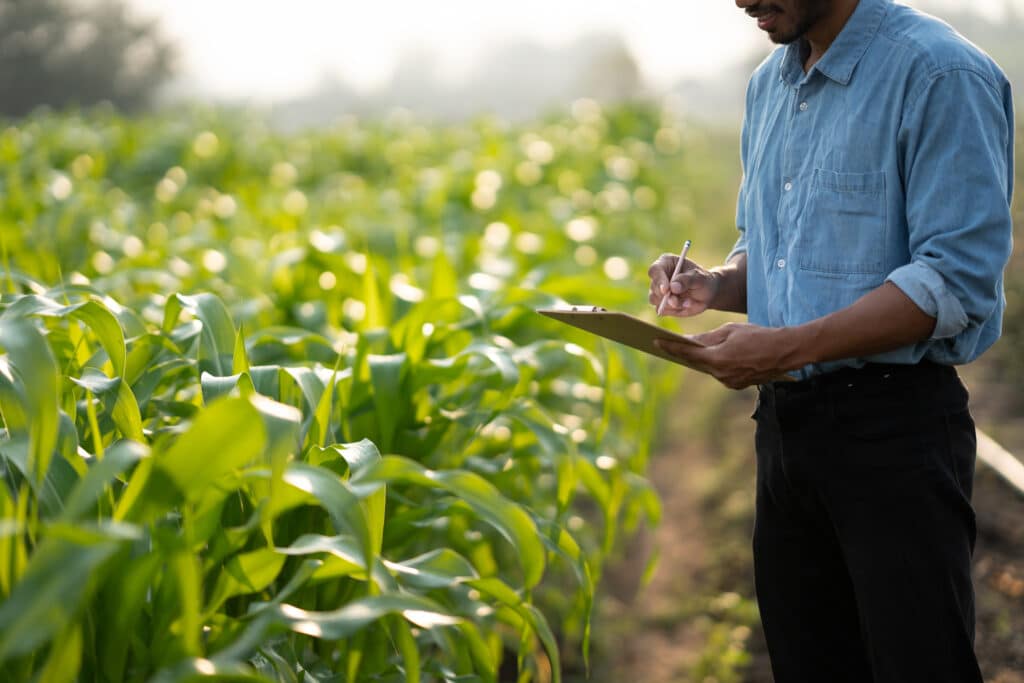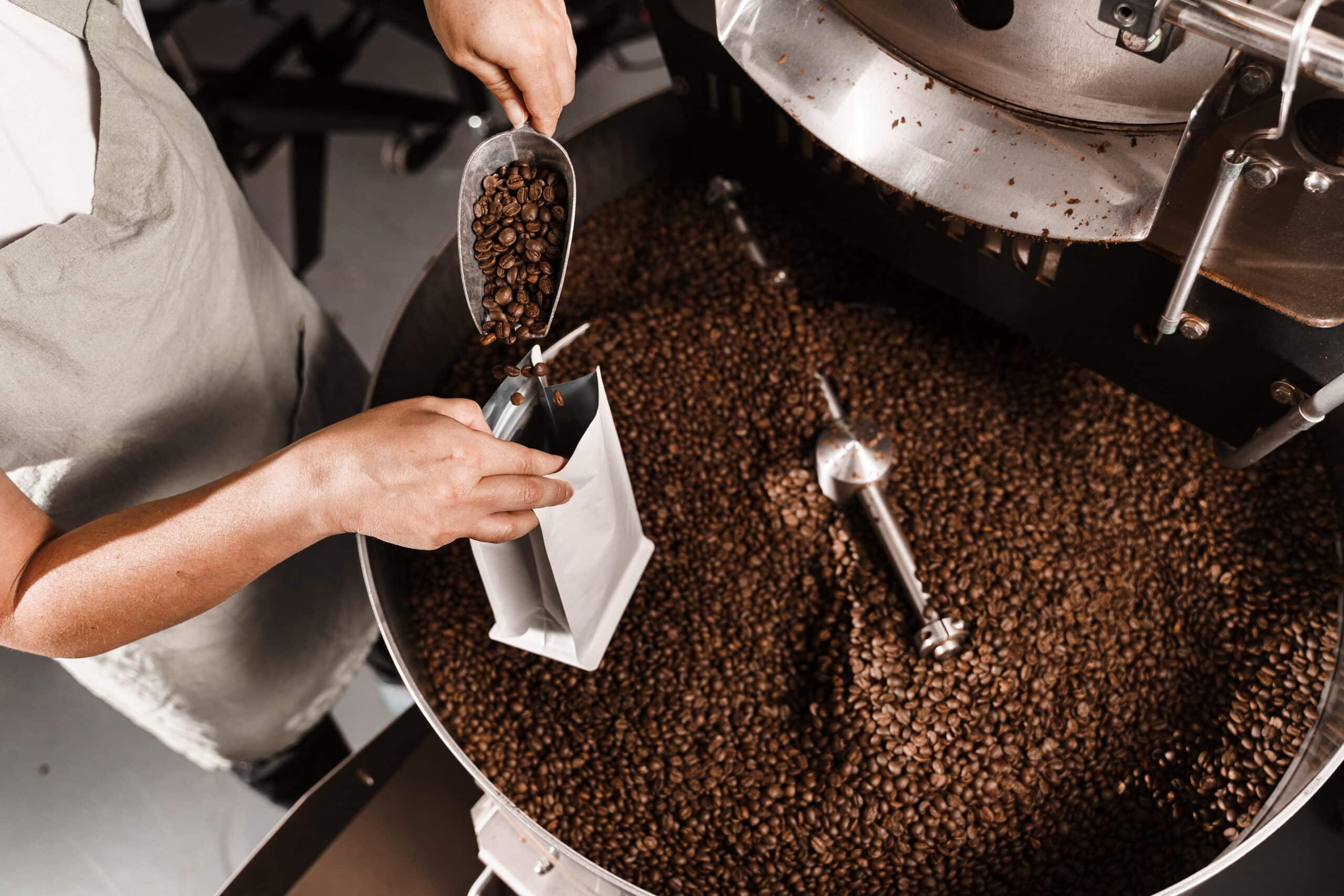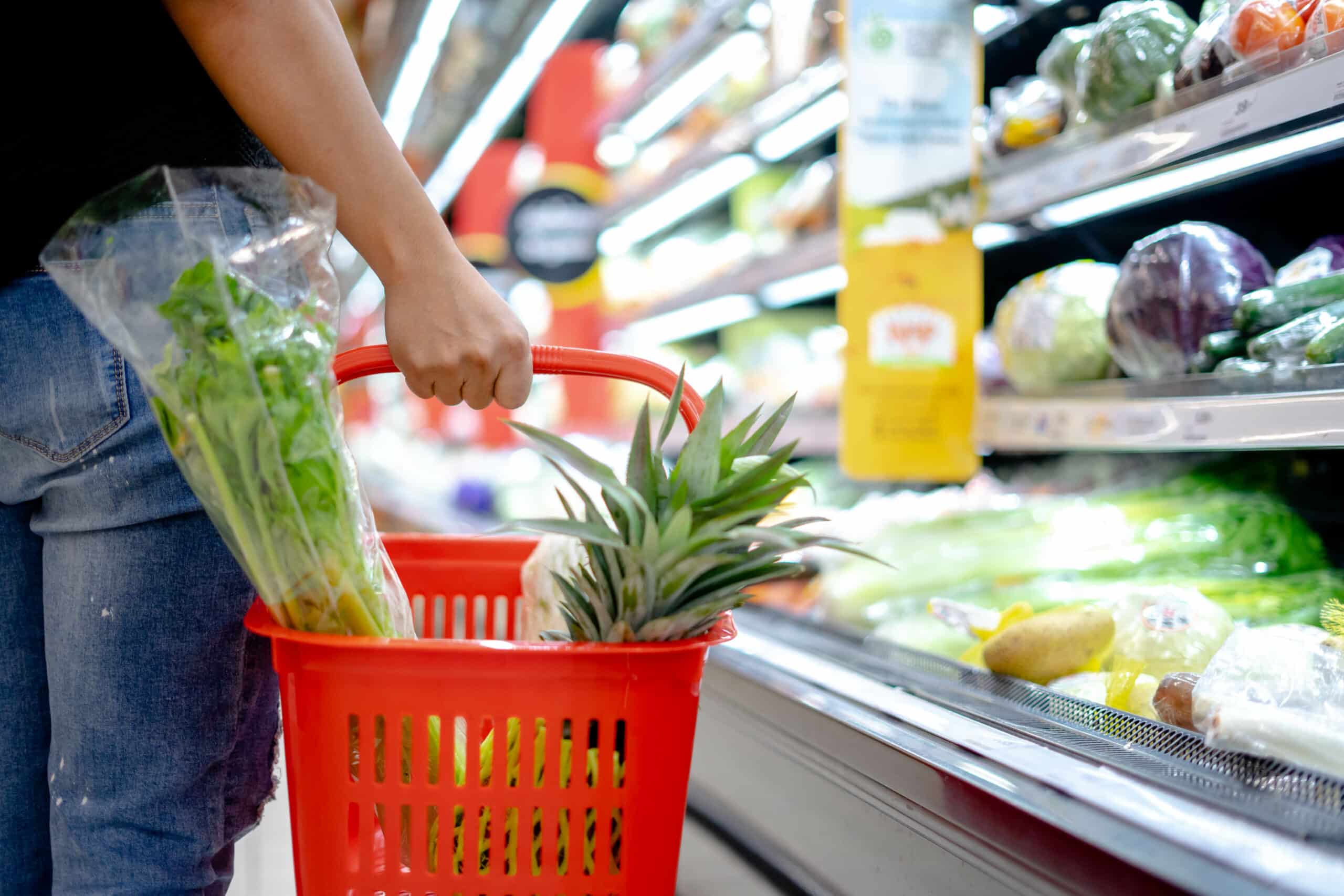The coronavirus has exposed the limitations of the Just In Time (JIT) supply chain model, or more to the point, exposed our over reliance on it. What is happening to global food supply chains right now amid the coronavirus pandemic and what other disruptive forces, good and bad, will change how food is supplied in the future?
Coronavirus has blindsided the world, but in the last two decades there has been more than one reminder that unpredictable forces can easily derail ultra-efficient, man made systems.
We haven’t seen the last of climate change, health pandemics, political disruption and trade conflict but benevolent technologies and more holistic strategic approaches to supply can also positively disrupt.
According to Malachy Mitchell, managing director of Farrelly Mitchell, the world will have to re-think how it designs its food supply lines.
“The lessons from this pandemic will be harsh on governments and the food and retail industries. Shorter and leaner supply chains might make economic sense, but they lack capacity and flexibility to respond to unplanned disruptions or rapidly changing demand patterns’’.
Impact on China
Food security analysts are keenly observing how China, the origin of the virus, is coping. Panic buying has increased pressure on supply, but the authorities have imposed heavy restrictions on transportation and general populace movement. This is most apparent in the effect on migrant labour.
Great swathes of the population move seasonally to contribute to producing and transporting food around the country and internationally. However, those workers are not travelling.
Less than a third of local adults from 104 villages in 12 inland provinces had travelled outside their hometown for work after the lunar new year, according to Wuhan University data. Normally, between 80 and 90 per cent of adults would be working elsewhere.
The impact of the virus is also being felt when it comes to transportation of fertilisers and seeds, particularly in Hubei province, China’s largest fertiliser producer and the centre of the coronavirus outbreak.
Local factories have struggled to reopen as a result of travel restrictions, as the country continues to take measures to contain the outbreak. A report from McKinsey also shows capacity to ship products from factories to ports is at 60-80 per cent of normal capacity.
An executive at one of the country’s top fertiliser distributors told the FT that Northeastern provinces, which produces most of China’s grain, face a shortage of 1.3m tonnes of phosphate fertilisers, or 40 per cent of annual consumption.
“We are going to have trouble maintaining agricultural output at a safe level if the shortfall doesn’t ease in the coming 30 days,” he said.
Analysts said a sharp fall in agricultural output, especially of grain, risked increasing further food inflation, which hit a 12-year high of 21.9 per cent in February. That would present a political challenge to the ruling Communist party.
For now, China has abundant grain in reserve as indicated on the USDA Grain report but other foods may not be as plentiful.
The citizens of the world’s most populous country may endure higher prices for meat, if inflation persists, but any impact on rice supplies will be highly concerning for Beijing.
In his compelling book, ‘Prisoners of Geography’, Tim Marshall wrote about the deal between the Chinese people and the government, summed up as, ‘“We’ll make you better off – you will follow our orders.” So long as the economy keeps growing the grand bargain may last. If it stops, or goes into reverse, the deal is off.’
The deal could founder on the price of rice if the supply chains create scarcity and inflation affects that crucial food staple.
UAE leading by example
Because of the culture encouraged by JIT, countries have become over reliant on familiar trade partners. Covid-19 exposes the common practice of heavy reliance on single source markets and import-based economies.
The draw of JIT is in its ability to improve cost competitiveness, but an effort at a more diverse approach could now present an almost mandatory contingency.
Some countries are set up to better manage negatively disruptive events and one such example is the UAE. The UAE’s adoption of technology and its strategic location lends itself to better support countries in the region at this time.
Crucially the country has invested heavily in its own domestic food security and maintains diverse market choice when it comes to food sourcing. It may prove more and more beneficial in a region where food security is not high.
Sean Dennis, CEO of online B2B seafood firm, Seafood Souq told Arabia News, “There’s been an investment and innovation wave in aquaculture and urban farming in the UAE over the past decade in the interest of food security.”
The UAE is also helped by its location and positioning as a global logistics hub, but Dennis added that prioritisation of digital technology is equally beneficial in the present scenario.
“The UAE also has one of the fastest growing e-commerce markets. Regardless of times of crisis, businesses need to think about adopting technologies to access this untapped potential.”
UK food policy in need of overhaul
At the other end of the spectrum, the UK looks vulnerable. The country’s agricultural sector produces just 50% of its food, and it is highly dependent on JIT and international imports.
Another aspect of the British experience is that a small number of corporations dominate food retailing, with huge emphasis on price severely damaging to the country’s agriculture. Primary producers get the smallest slice of the cake and so the agriculture industry is discouraged rather than encouraged to provide more of the nation’s food.
This is seen in startling effect in a recent Guardian article highlighting that, of the six million hectares of cultivatable land in Britain, only 168,000 hectares are used for fruit and vegetables.
Food chiefs warned the government how fragile the food supply chains are during the Brexit debate, but now coronavirus has accelerated that issue as European countries limit border traffic, adding a day to fresh food transit times and increasing wastage.
Again, in line with JIT modelling, retailers are used to trusting well-worn formulas to set stock levels in to account for factors such as the weather, holiday and local sporting events. The patterns are well-established, and the system never fails so long as people behave as expected.
Those patterns are radically different now with restaurants shut down and the public dining at home, adding to the pressure on the grocery sector.
Meanwhile companies have had to plan for the loss of one third of their workforce as the virus takes its toll on human resources.
Panic-buying is the most visible reaction to the virus, with shoppers buying an estimated £1bn of food that they have not yet eaten.
For now, the government has relaxed restrictions on driver hours to allow more food to be delivered more quickly to shops, supermarkets have been recruiting more staff and limiting shopping hours so they have more time to restock and factories have been moving to longer operating times.
In addition, food producers have started to cut ranges to focus on volume. In the first week of March, sales of pasta, canned meat and tinned soups rose by 60 per cent compared to a year earlier.
Defra, the environment ministry, has opened a “war room” to ensure Britain’s food security during the pandemic. Rationing has been dismissed as an option but there has been acknowledgement that consumers could see less choice in the coming months than they have been accustomed to.
In terms of long-term food security, Tim Lang, the UK’s leading expert on food policy, and a consultant to the World Health Organization, outlined some potential solutions in his new book, Feeding Britain.
His comprehensive remedy includes the introduction of a food resilience and sustainability act, complete with legally binding targets, national nutritional guidelines as the basis for food procurement contracts, an audit of food production in the UK, a food resilience and sustainability council and a network of urban and rural food and farming colleges.
According to Lang, “We just need to re-engineer how capitalism works for us… We need to move from a ‘me’ food culture to a ‘we’ food culture.”
A similar scenario to what is being experienced in China could play out in Western European countries such as Italy, the UK and Spain, as they rely heavily on labour from Eastern Europe and parts of Asia during harvest. Will those vital workers be prevented from taking up these duties?
The question must also be asked, will workers be willing to work in intensive environments during this pandemic? Workers at two of Northern Ireland’s biggest agri-food processing sites walked out on the 25th of March over fears their health was being put at risk in working through the virus.
Knock-on effects on food supply infrastructure
Food loss at the post-harvest stage may be worsened in third world countries, as supply chains are disrupted internationally. Many farmers in Africa do not have the resources and infrastructure to store food for any length of time, and markets are difficult to reach for many producers as is.
In much of Africa there has been a notable reduction in cargo capacity in the wake of the virus and travel restrictions have also reduced freight capacity.
Long queues and panic buying have made older generations in Ghana fearful of a return to the dark days of hunger experienced in the early 1980s with the local press report that some basic food products have risen in price between 20 and 33 per cent.
The Graduate Farmer Network released a statement asking for the government to more effectively plan to combat what they call a ‘a food security time bomb.’
“Ghana has made a lot of progress in ensuring food for all over the last few years, but this virus threatens to erode the massive gains that have been made,” they added.
The crisis has hit the country’s cashew industry, with China, India and Vietnam, the world’s largest cashew importers, reducing intake substantially. The price at which farmers sell a 100kg bag of raw cashew nuts to processors has dropped by between 40 and 50 percent, reducing farmer income.
Implications for food consumption habits and future supply chain models
How the more discerning consumer adapts to developments is yet to be seen. Western societies in particular have evolved significant markets in gluten-free, sodium-free, dairy-free, no sugar added, plant-based meat, vegan, non-GMO, and rain forest alliance certified products but many of those products may become scarce as restrictions continue to impede trade flows.
There are other positive outcomes to be considered. The pandemic is causing consumers to think more about shopping from local food suppliers for one.
But many questions remain to be answered as the pandemic takes its course.
How much of the Bullwhip theory are countries about to experience and how can technology be re-tuned to counter the challenges caused by future epidemics?
Will future supply benefit from being more transparent, more methodical and having a more collaborative approach to understanding of consumer behaviour? Will more data be shared to build a better food ecosystem for all? Despite the exposure of tech’s limitations by the virus, will business double down on smarter technology or will greater focus be placed on contingency and market variety instead of pure profit?
Saving lives is the number one priority but re-thinking and rebuilding our supply chain lines will continue to focus minds, long after the virus is beaten, and vaccines distributed.
Expert agribusiness insights
The need for resilient and flexible supply chain models has never been more critical. Major disruptive forces such as the pandemic highlight the fragility of current supply chain models, but they also provide lessons on how to adapt to future threats.
Our expert agrifood supply chain consulting provides businesses with the tools to navigate and thrive in uncertain times. Our risk analysis & management services ensure that our clients are well prepared for emerging threats, and can turn them into value-add opportunities. Our consultants support the entire food value chain from processing & manufacturing to foodservice & retail, allowing us a holistic understanding of the entire food and beverage industry. By focusing on building robust, transparent, and efficient supply chains, Farrelly Mitchell empowers businesses to overcome the vulnerabilities exposed by the pandemic and other global crises, paving the way for a more sustainable and secure future in food supply and beyond.














